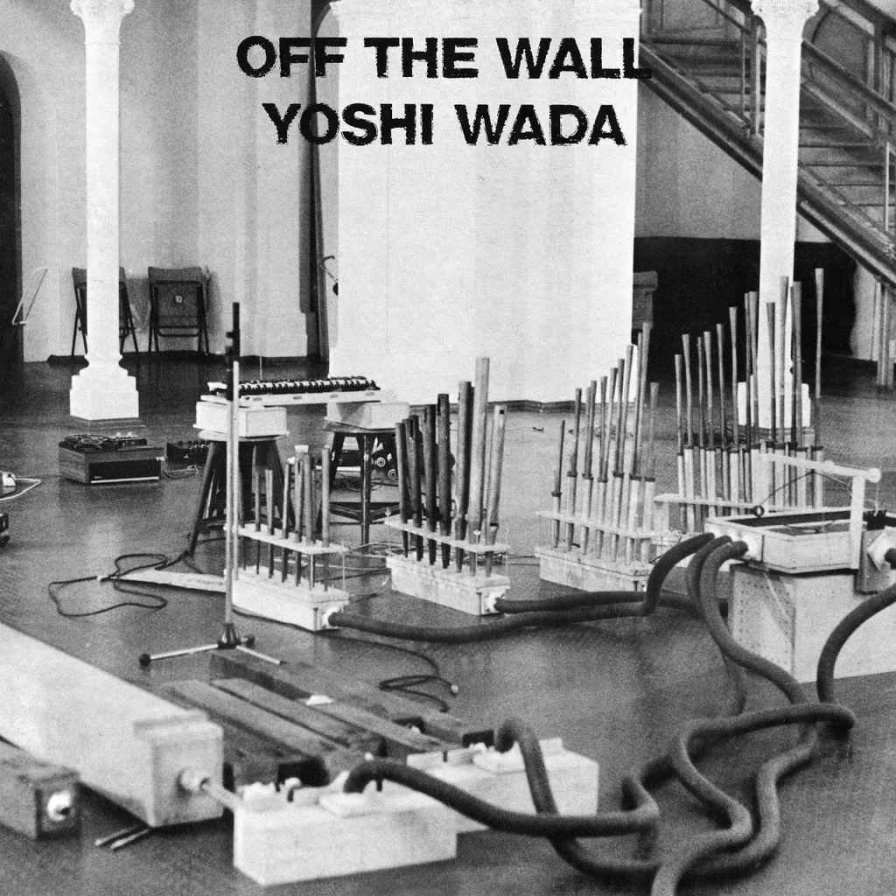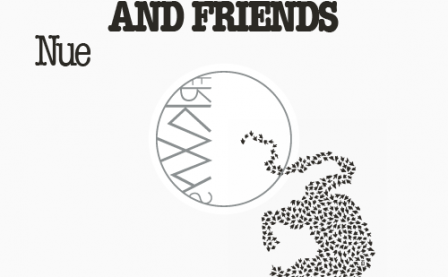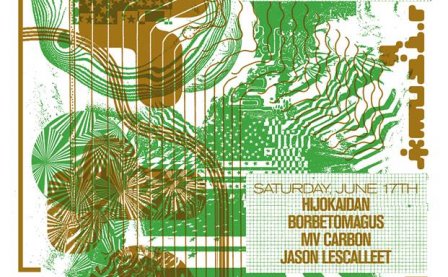Minimalism and improvisation have quite a bit in common as both present music that’s arrived at through the process of engaging with the environment — including musicians, physical space, and sound — and creating strata that coalesce into the reflection of a superstructure. While not often spoken of in the same breaths that produce such names as Phillip Glass, La Monte Young, or Steve Reich, Japanese-born sculptor and composer Yoshi Wada’s evolutionary works based on repeating figures and intensely-felt drones are among the most immediate and affecting in the minimal sound-art canon. Wada was associated with Fluxus — a semi-collectivized movement toward anti-hierarchical artistic production — and lived in New York’s SoHo (he’s since returned to the city after a long stint on the West Coast). Wada’s music, using fabricated metal pipe horns, organ, bagpipes, and percussion, has rarely been captured accurately on disc (part of that is surely the ephemeral spirit of Fluxus and the fact that these sculpted drones don’t translate to home stereos), though attempts were made by Berlin’s Free Music Production and New York’s India Navigation Co. in the early 1980s. Not coincidentally, both labels were mostly home to avant-garde jazz and free-improvisation.
Off the Wall was the second Wada LP to be released, on FMP’s SAJ subsidiary (named for Swedish percussionist Sven-Åke Johansson) in 1985, and was recorded in Berlin. The music was arrived at through performing in a number of different churches and similar spaces, allowing for mobile engagement with natural reverb in addition to the layered sonorities of pipes, homemade organ, cymbals, and tuned percussion. The percussionist is Andreas Schmidt Neri and the organist is Marilyn Bogerd, who worked with Wada throughout this period. This LP reissue was remastered by Rashad Becker and issued on Saltern, the label of Yoshi’s son, Tashi Wada, also a composer and contemporary music historian. Compared to the original, this reissue is incredibly rich and balanced, with a presence that the original LP couldn’t quite reach.
Following an alap phase that sets pipes and organ in motion, not to mention their brassy undercurrents, with robust chordal calls and sinewy, plasticized clamber, the ensemble (with kettle drum) sets into a driving, stippled advance. As the bagpipes, played by Wada and Wayne Hankin, skirl and intertwine, it’s not difficult to hear the attraction of this music to an audience more inclined toward free music, as unaccompanied, incisive twitter reminiscent of soprano and alto saxophones breaks against warped unity toward an incredibly dense first-side conclusion. In a bright holding pattern against clattering cymbals and metallic shake, interspersed with deep chordal fluffs, the second half presents more sparsely at the outset, Neri’s mallets dancing an insistent two-step and rendered with clarity. Bogerd’s organ once again takes on grainy, brassy qualities against low rhythmic thrums, pipes bouncing off of gooey long tones in a reflective processional. The piece closes with skipping, loose reed exhalations, Wada and Hankin blurring in a controlled frenzy of muscle, breath, and sound atop the ensemble’s resonant pace. While a relatively basic concept front to back (the graphic score is reproduced inside the gatefold jacket), the results are exhilarating. Wada’s setting of resonance and variable tuning against supple rhythms also recalls Downtown New York contemporaries like Rhys Chatham and Glenn Branca, and Off the Wall is similarly majestic. With this reissue, we can now hear the music as intended.
More about: Yoshi Wada



